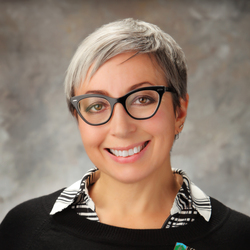Fall has arrived, and along with the crisp air and colorful leaves comes the annual pumpkin spice frenzy. Whether it’s classic lattes, muffins or scented candles, or the more creative twists like potato chips, noodle cups or gum, pumpkin spice is everywhere, reminding us that autumn is in full swing!
While you’re enjoying a pumpkin spice treat (pumpkin spice hummus, anyone?), remember, there’s another important season approaching — open enrollment! This is the annual window — usually starting Nov. 1 — when you can make changes to your health insurance plan or enroll in new coverage for the upcoming year.
As you start reviewing your health plan options, don’t forget to consider one of the most valuable tools available — a health savings accounts (HSA). Think of it as the pumpkin spice of financial planning: With tax advantages and long-term savings potential, HSAs can be the perfect fall upgrade to your financial plan.
What is a Health Savings Account (HSA)?
An HSA is a tax-advantaged savings account that works alongside a high-deductible health plan (HDHP). You’ll get an HDHP through your employer or by purchasing it directly from an insurance provider or marketplace. If your employer or insurance provider offers an HSA with it, great! If not, you can easily open one yourself through a bank or other financial institution.
What makes HSAs so appealing is how they help you save for qualified medical expenses tax-free, and the real beauty of an HSA is in its triple tax benefits:
- Tax-free contributions: The money you put in lowers your taxable income.
- Tax-free growth: Any interest earnings grow without being taxed.
- Tax-free withdrawals: When you use the funds for qualified medical expenses, you won’t pay taxes on those withdrawals.
Now, high-deductible health plans tend to have lower monthly premiums but require you to pay more out of pocket before your insurance starts covering expenses. This makes them a great fit if you’re generally healthy and don’t visit the doctor very often. By pairing the plan with an HSA, you get a way to balance those higher upfront costs while enjoying tax savings down the road.
What Qualifies as Medical Expenses?
HSA funds are incredibly versatile and can be used to cover a wide range of qualified medical expenses, including, but not limited to:
- Doctor visits and prescriptions
- Dental care
- Vision care
- Mental health services
- Chiropractic care
- Certain over-the-counter medications and first-aid supplies
- Hospital services and surgeries
It's important to note that while you can technically use HSA funds for non-qualified expenses, doing so will result in the amount being subject to income tax, and if you're under age 65, you’ll also face a penalty. It’s up to the account owner to ensure that the expenses are qualified to avoid these additional costs.
4 Perks of an HSA
Open enrollment is a great time to think about whether an HSA is right for you. If you're choosing a high-deductible health plan, adding an HSA could be one of the smartest financial moves you make — not just for now, but for the future — because:
- Your HSA funds roll over. Unlike a flexible spending account (FSA), where unused funds may expire, your HSA balance rolls over year after year, allowing you to save for future health care needs. Many HSAs, like Bank of Utah’s, earn interest, helping your balance grow over time, tax-free.
- The money in your HSA is yours to keep. Once you contribute to an HSA, the funds are yours, even if you change jobs or retire, offering long-term flexibility and control over your health care savings.
- You can use HSA funds for non-medical expenses after age 65, without penalty. While the funds can be used for non-medical expenses without penalties, they will count as taxable income if not used for health care. However, using the funds for qualified medical expenses remains tax-free.
- Your HSA is easy to use. It typically comes with a card you can use like a debit card at doctors’ offices, pharmacies or online. Just make sure, with a high-deductible health plan, that your insurance is billed first to ensure the expenses count toward your deductible.
Health care costs in retirement can be overwhelming. In fact, the 2023 Fidelity Retiree Health Care Cost Estimate suggests that a 65-year-old retiring this year can expect to spend an average of $165,000 in health care and medical expenses throughout retirement.
By starting early, your HSA can grow into a tax-free resource to help cover these future costs, giving you peace of mind as you plan for your later years.
How Much Should You Contribute to an HSA?
Just like with a 401(k), there’s a limit to how much you can deposit into an HSA each year. For 2025, individuals can add up to $4,300, and those with family coverage can save up to $8,550. If you’re age 55 or older, you can also make an extra $1,000 catch-up contribution to boost your savings.
So, how much should you contribute? That depends on your financial goals and health care needs.
It’s a good idea to set aside enough in your HSA to cover your annual deductible, ensuring you’re prepared for unexpected medical expenses. If your budget allows, consider increasing your savings. Some employers even offer a matching benefit up to a certain amount, which means extra money in your pocket — so take advantage of that if it’s available! Just remember that employer contributions count toward your annual limit, so factor them in when planning your total savings.
Even better, pay for your medical expenses out of pocket if you can, leaving your HSA untouched. Your unused funds will continue to grow tax-free, giving you more financial flexibility in the future.
Don’t Miss Out This Open Enrollment
While you’re enjoying your favorite pumpkin spice treats, don’t forget to prioritize your financial health this open enrollment season, which typically starts Nov. 1. An HSA offers a simple, flexible way to save for future health care costs, reduce your taxable income and build a retirement cushion.
Take the time to review your health insurance options, and when you're ready to explore how an HSA can benefit your financial plan, reach out to one of our friendly bankers. We can help you set up an HSA for yourself, and if you’re an employer, we also offer an HSA option to help you support your team’s financial well-being.
 Rebecca Norman has been in banking since 2004, bringing a wealth of knowledge in financial services, team building and exceptional customer service. Outside of work, Rebecca enjoys road trips, hiking and spending time with her family and pets.
Rebecca Norman has been in banking since 2004, bringing a wealth of knowledge in financial services, team building and exceptional customer service. Outside of work, Rebecca enjoys road trips, hiking and spending time with her family and pets.




